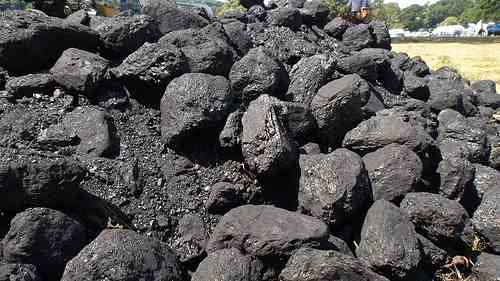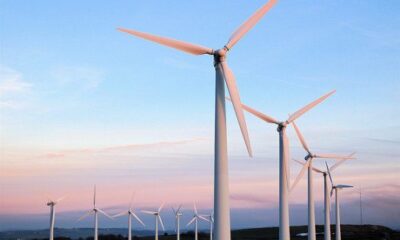

Energy
Alberta follows UK decision to phase out coal & will transition to renewables & gas generation by 2030
Alberta Premier Notley’s new announcement of a phase out of coal emissions by 2030 is a significant step forward, and builds momentum following the UK coal phase-out announcement just four days ago. Alberta accounts for 65% of Canada’s total coal capacity.
Alberta is home to 18 out of the remaining 35 coal units in Canada, and accounts for 65% of Canada’s total coal capacity. Alberta is responsible for 36% of Canada’s GHG emissions, despite being only having 11% of the population. Coal is the source of 55% of electricity generation in the province. In contrast, Ontario shut down its coal power plants between 2007 and 2014, more than 6GW of capacity was retired (E3G Canada country profile, October 2015).
Canadian electricity production has been dominated by hydropower over past decades, accounting for 65% of power generation in 2013. In 2013, coal combustion accounted for over 8% of Canada’s total CO2 emissions. Coal power only made up 10.5% of electricity generation in 2013.
The coal mining industry provided over 25,000 direct and over 16,500 indirect jobs in 2011. Yet Canada’s renewable energy sector is already starting to rival coal job figures. In 2013, the green energy industry employed 23,700 people directly.
Al Gore, Former US Vice President, Chairman of The Climate Reality Project said: “Today’s announcement by Premier Notley that Alberta will put an economy-wide price on carbon, phase out coal and increase its commitment to renewable energy and energy efficiency represents an inspiring addition to the legacy of leadership and forward thinking action by Canadian provinces to speed our transition to a low carbon economy. This is also another powerful signal — well-timed on the eve of the Paris negotiations — that humanity is beginning to win our struggle to solve the climate crisis.
“We do need to win faster. I encourage Premier Notley, and all of Alberta, to follow this first step with continued bold action to transition away from fossil fuels.”
Key details of the announcement include:
– Alberta will phase out all pollution created by burning coal and transition to more renewable energy and natural gas generation by 2030.
– Three principles will shape the coal phase-out: maintaining reliability; providing reasonable stability in prices to consumers and business; and, ensuring that capital is not unnecessarily stranded.
– Two-thirds of coal-generated electricity will be replaced by renewables – primarily wind power – while natural gas generation will continue to provide firm base load reliability.
– Renewable energy sources will comprise up to 30 per cent of Alberta’s electricity production by 2030.
Tim Flannery, PhD., head of the Australia Climate Council and best-selling author of The Weather Makers and Atmosphere of Hope, said: “Moving off of coal and onto renewables is an essential part of this global energy transition. Alberta has made the right choice in its new plans to act on climate.”
Ed Whittingham, Executive Director, Pembina Institute commented: “The complete phase-out of coal by 2030 makes clear the government of Alberta’s intention to improve air quality and to tackle one of our highest-emitting fuel sources. Given the international attention on coal as an unnecessary source of pollution, the government of Alberta’s decision not only protects people’s health and saves the province’s health care system hundreds of millions of dollars a year, it gives Alberta the credibility to bring a better message and approach to Paris.”
Sierra Club Executive Director Michael Brune added: “In the United States, the Sierra Club is proud to have helped slow the expansion of tar sands infrastructure and ensure that over 200 dirty coal plants are slated for retirement, and Alberta’s announcement today is a welcome sign that the climate movement is continuing to grow. Just last week, the United Kingdom announced it was also transitioning fully off of coal and Canada’s Prime Minister Trudeau issued guidance to ban oil tankers off the North Coast of British Columbia. This commitment and leadership shows it is not only possible to move beyond dirty fuels in the United States and around the world — it is inevitable.”
Chris Littlecott, Programme Leader at E3G said: “Alberta’s climate plan combines bold goals with credible policies. It deserves real praise for prioritising the phase out of coal power plants and accelerating the deployment of renewables. When an energy producer like Alberta takes action the world must sit up and take notice that the shift away from coal is gathering pace. The new Canadian government now has a great opportunity to join the UK in driving this transition across the G7 and internationally.”


 Environment11 months ago
Environment11 months agoAre Polymer Banknotes: an Eco-Friendly Trend or a Groundswell?

 Features10 months ago
Features10 months agoEco-Friendly Cryptocurrencies: Sustainable Investment Choices

 Features11 months ago
Features11 months agoEco-Friendly Crypto Traders Must Find the Right Exchange

 Energy10 months ago
Energy10 months agoThe Growing Role of Solar Panels in Ireland’s Energy Future





























